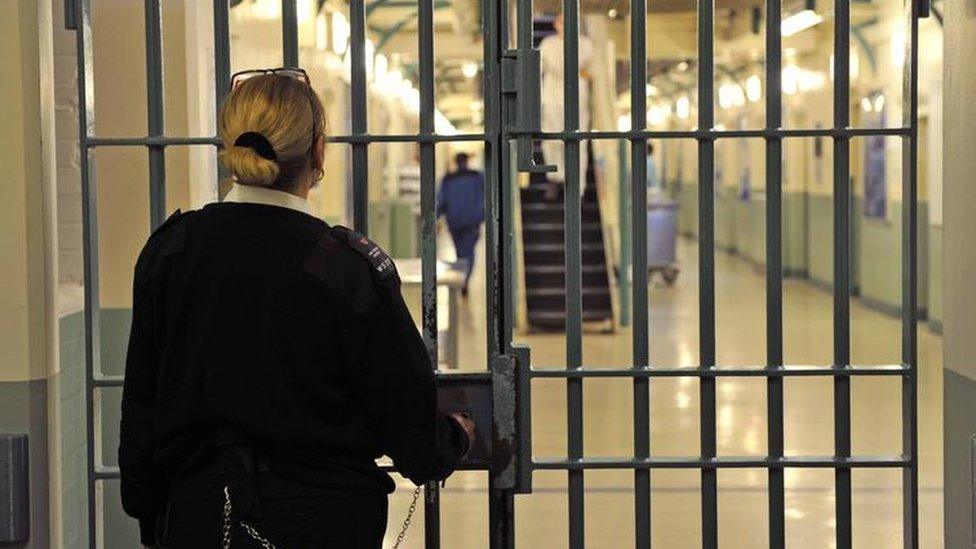Jailed fraudsters reveal scam secrets to police
- Published

Detectives have visited hundreds of convicted fraudsters in prison to find out how they carried out their crimes, City of London Police has said.
Commissioner Adrian Leppard said the information helped disrupt cybercrime and reduce the number of victims.
The prisoners were not rewarded with reduced sentences, he told the BBC.
Police have always spoken to convicted criminals, but the force's widespread use of the practice since 2012 is thought to be unprecedented.
'Protect people'
City of London Police, which leads on economic crime, said most of the convicts their officers had visited were imprisoned in the UK, but detectives had also travelled overseas to conduct interviews.
Mr Leppard said: "We're grappling with this type of crime and we've got to find out how to protect people.
"We need to understand how criminals attack. How do people move money, launder money, how do criminal associations start, what are the enablers?"
He said some fraudsters spoke to detectives because it was "morally" right.
The City of London commissioner said the details disclosed had helped police improve their response to fraud and cybercrime but he warned the threat was "growing exponentially".
In the 12 months ending in March 2015, 230,630 fraud offences were recorded in England and Wales, an increase of 9% on the previous year.
A further 389,718 fraud offences were reported by industry bodies, 17% up on the year before, with most of the offences involving plastic cards, cheques and online bank accounts.
The majority of frauds investigated by police have an online element to them.
City of London Police said 90% of the fraudsters they had approached agreed to co-operate, providing information on investment frauds, so-called "boiler room" scams, courier fraud and insurance crime.
"Boiler room" fraud involves cold calling people to pressure them into buying shares, which are either worthless or non-existent.

City of London Police commissioner Adrian Leppard said fraudsters were not rewarded with reduced sentences
Extracts of interviews with the criminals are contained in a bulletin known as the Intelligence Debrief Report, issued by City of London Police's National Fraud Intelligence Bureau.
The information is distributed to law enforcement agencies, businesses and key government departments.
The June 2015 bulletin says: "When we started in 2012, the concept of debriefing criminals and passing the sanitised information direct to industry and the wider community was very new and certainly since then, the products have been very well received."
Fake offers
The bulletin includes an explanation from a man behind an investment scam in which people were conned into parting with their money on the false promise of huge returns.
"Finding people who want to invest was simple," he told the BBC. "We just went to Companies House and bought the lists of shareholders."
A second criminal interviewed by police said he and his associates would send out blanket mail-shots to get people's details.
"Free gifts, prize draws, competitions to wins iPads, offers, anything where people willingly give over information about themselves," he says.
A different method is outlined by another fraudster in the intelligence report, who says he found the names of real companies and then created bogus websites to attract investors.
"The fundamental thing is that people want to believe it's all genuine and they want to give you their details because everyone wants to make money," he says.
City of London Police announced a new multi-million pound partnership on Wednesday with the New York District Attorney's Office and the Center for Internet Security to address the cyber crime threat.
The aims of the Global Cyber Alliance, which will be based in New York and London, are to identify global threats, form action teams, and design approaches to confront and prevent malicious cyber activity.
- Published27 July 2015

- Published6 July 2015

- Published27 March 2015

- Published13 October 2014
